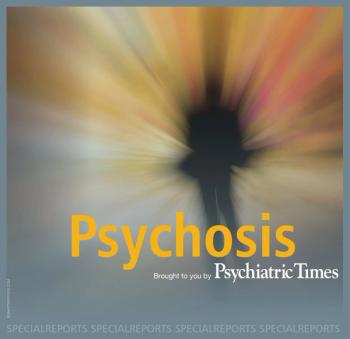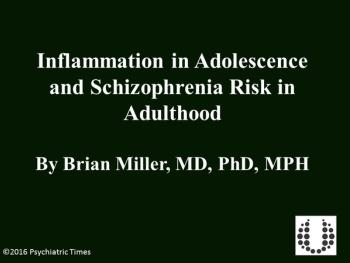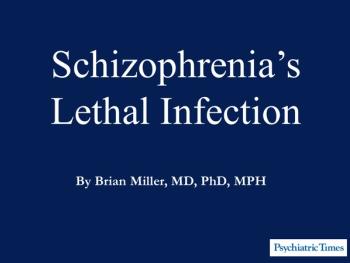
The nightmarish reality of psychosis is vividly detailed by Deborah Danner, a woman with self-described schizophrenia, recently shot to death by a New York City policeman.

The nightmarish reality of psychosis is vividly detailed by Deborah Danner, a woman with self-described schizophrenia, recently shot to death by a New York City policeman.

Are antipsychotics associated with an increased risk of breast cancer?

A recent meta-analysis shows this agent is useful in the prevention and treatment of antipsychotic-induced weight gain.

A “high-tech” approach to relapse prevention in patients with schizophrenia.

Can't keep up with the literature? Here's some help.

With antipsychotics, my once-brilliant child can again speak, write, read, and maintain hygiene and has regained motor functioning.

A recent meta-analysis shows this adjunctive agent reduces residual symptoms of psychopathology as well as body weight.

The year 2016 marks a critical time in our understanding of and approaches to treating schizophrenia spectrum disorders.

Is inflammation a cause or consequence of illness in schizophrenia?

The supposed “epidemic” of mental illness turns out to be mostly a myth in the US adult population, 2000-2015.

What an exciting time to be involved in understanding and providing care for people with schizophrenia spectrum disorders!

Psychiatrists who treat patients with psychosis in institutional, community, and crisis settings provide evaluations and medication management, but rarely consider psychotherapeutic interventions. However, such interventions can be critical in recovery.

Culture-the way people make meaning and live their lives in particular social worlds-matters in psychosis. The authors explore how a patient's cultural background should influence the way clinicians think about treatment and care.

The authors discuss the clinical implications of the changes in the DSM-5 section on schizophrenia spectrum and other psychotic disorders.

A review of the distinction between depressive and psychotic symptom domains, current knowledge about the etiology and neurobiology of depression and psychosis, and how this knowledge can inform the treatment of patients with features of both.

It’s not health care expenses that are driving up costs.


Are you aware of this newly identified risk factor for suicide?

This hormone-based therapy shows promise for older women with refractory symptoms.

The authors examine the literature on "quality of life" and how antipsychotics improve that for patients with schizophrenia.

What should you tell your patients with schizophrenia about exercise?

Art theory from the 20th century onward-despite the latter day efforts at denial-was nearly indistinguishable from psychoanalytic theory, and it parallels the philosophical struggles and pains that continue to plague psychiatry.

What should you do when patients with preexisting psychosis express an interest in lengthy travel?

Insights from the first study of mortality and cumulative psychotropic exposure in schizophrenia.

The authors parse myths and facts about decisional capacity, with the goal of preserving patients' dignity and autonomy and helping you mediate conflicts, meet bioethical challenges, and provide compassionate resolutions.